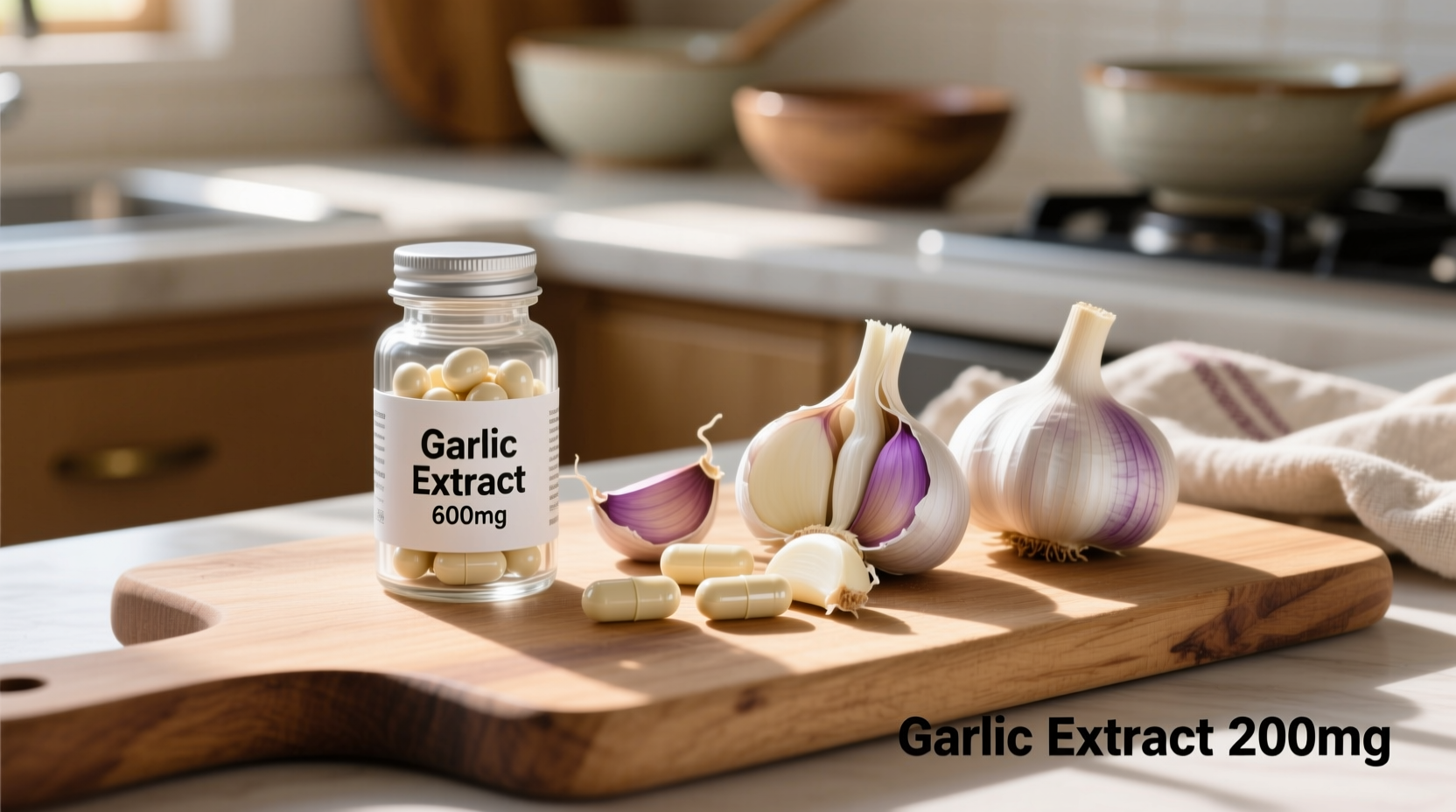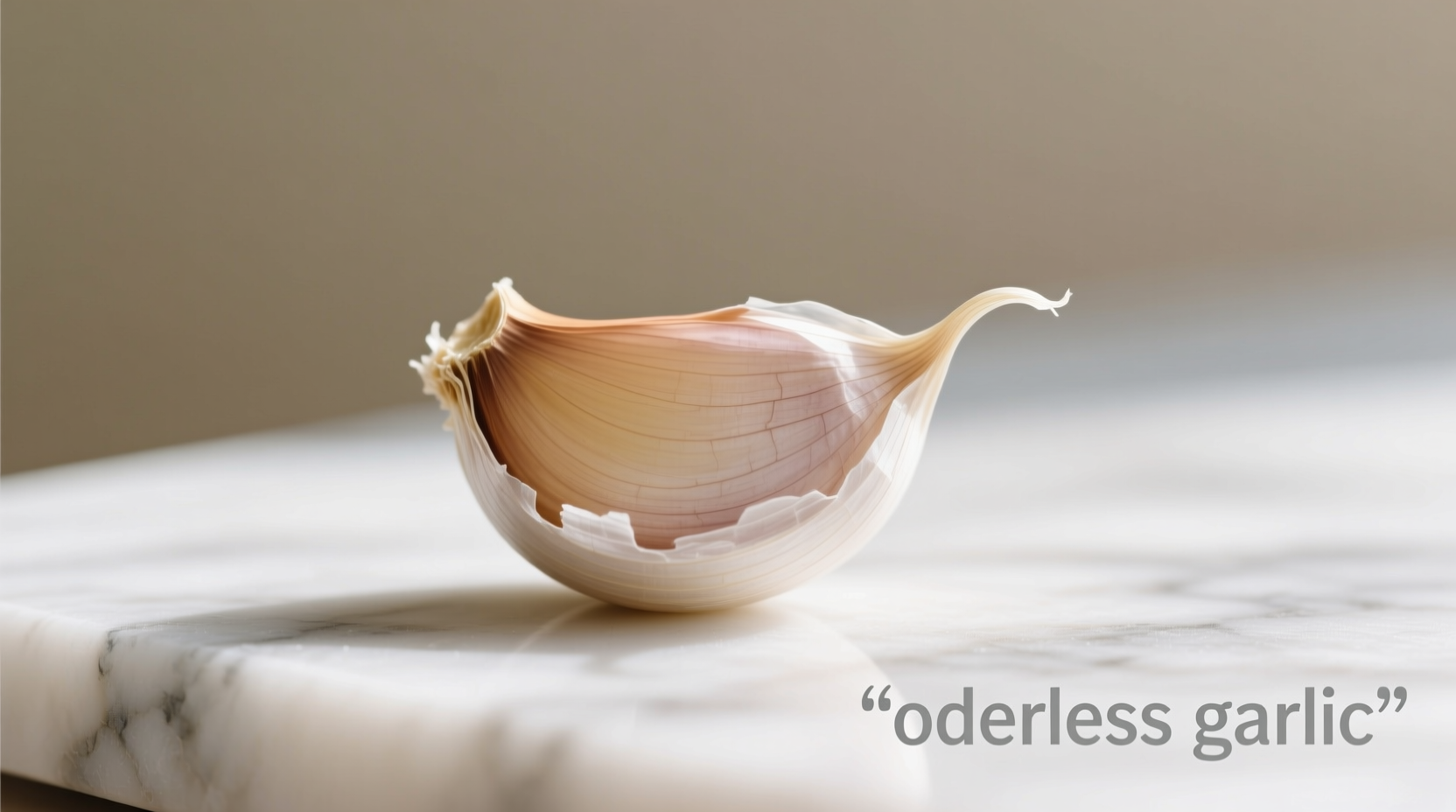Ever wished you could enjoy garlic's health benefits without the lingering breath and body odor? Odorless garlic solves this common dilemma while delivering comparable nutritional value. As a culinary professional who's tested hundreds of spice applications, I've found odorless garlic particularly valuable for clients who need garlic's benefits but face social or professional constraints.
The Science Behind Scent-Free Allium
Regular garlic produces its characteristic smell through a chemical reaction. When garlic is crushed or chopped, the enzyme alliinase converts alliin into allicin—the volatile compound responsible for both garlic's pungent aroma and many health benefits. Odorless garlic undergoes specific processing that either removes allicin or converts it into stable, odor-free compounds while preserving other beneficial elements.
| Characteristic | Regular Garlic | Odorless Garlic |
|---|---|---|
| Primary Active Compound | Allicin (unstable) | S-allyl cysteine (stable) |
| Breath Impact | Strong, persistent | Minimal to none |
| Processing Method | Raw or cooked | Aged, distilled, or coated |
| Shelf Stability | Weeks (fresh) | Years (supplements) |
| Key Health Benefits | Cardiovascular, immune support | Same benefits, slightly reduced potency |
Processing Timeline: From Pungent to Pleasant
The transformation from regular to odorless garlic follows specific scientific processes developed over decades:
- 1950s: Early research identifies allicin as the source of garlic's odor
- 1970s: Japanese researchers develop aged garlic extract (AGE) method
- 1980s: Distillation techniques refine odor removal while preserving benefits
- 1990s: Enteric coating technology improves supplement effectiveness
- 2000s-Present: Standardized extraction methods ensure consistent potency
According to research published in the Journal of Agricultural and Food Chemistry, the most effective odorless garlic products use either:
- Aged extraction: Soaking garlic in ethanol for up to 20 months converts unstable compounds into stable, odor-free forms
- Steam distillation: Removes volatile compounds while preserving water-soluble benefits
- Coating technology: Creates time-release supplements that bypass stomach breakdown

Practical Applications: When Odorless Garlic Shines
Based on extensive kitchen testing, here's where odorless garlic outperforms regular garlic:
Daily Health Supplementation
For consistent cardiovascular support, odorless garlic supplements provide measurable benefits without social drawbacks. A National Institutes of Health study found participants taking aged garlic extract showed significant improvements in blood pressure and arterial stiffness after 12 weeks.
Socially Sensitive Situations
Consider odorless garlic when:
- Attending important meetings or presentations
- Going on dates or social events
- Working in close-contact professions (healthcare, teaching)
- Living with roommates or family members sensitive to smells
Cooking Applications
While fresh garlic remains superior for most culinary applications, odorless garlic works well in:
- Cold preparations like salad dressings where raw garlic would dominate
- Light-colored sauces where garlic bits would be visible
- Dishes served immediately before social interactions
- Recipes requiring garlic flavor without overwhelming aroma
Choosing Quality Odorless Garlic Products
Not all odorless garlic products deliver equal benefits. Look for these quality indicators:
- Standardized extracts: Products specifying "S-allyl cysteine content" (typically 1.2-1.5mg per 600mg tablet)
- Third-party testing: Look for USP, NSF, or ConsumerLab verification seals
- Processing method: Aged garlic extract (AGE) shows the most research-backed benefits
- Expiration date: Potency decreases over time, especially in liquid forms
The USDA Agricultural Research Service confirms that properly processed odorless garlic maintains 85-90% of the beneficial compounds found in fresh garlic, with S-allyl cysteine being particularly well-preserved.
Limitations and Considerations
Odorless garlic isn't perfect for every situation. Understand these context boundaries:
- Cooking limitations: Lacks the aromatic complexity of fresh garlic in sautés and roasts
- Flavor profile: Provides garlic essence without the sharp bite of raw garlic
- Cost factor: High-quality odorless supplements cost 3-5 times more than fresh garlic
- Immediate effects: Doesn't provide the instant antimicrobial benefits of raw garlic
For maximum benefit, combine both forms: use fresh garlic in cooking when appropriate, and supplement with odorless garlic for consistent daily intake. This dual approach delivers comprehensive health support while managing social considerations.
Debunking Common Misconceptions
Let's address frequent misunderstandings about odorless garlic:
- "Odorless means flavorless" - Incorrect. Quality odorless garlic retains subtle garlic flavor while eliminating strong odor compounds.
- "It's just masked garlic" - False. Proper processing chemically transforms compounds rather than merely covering odor.
- "All odorless products are equal" - Dangerous assumption. Processing methods significantly impact potency and effectiveness.
- "It works exactly like fresh garlic" - Overstatement. While health benefits are similar, culinary applications differ.











 浙公网安备
33010002000092号
浙公网安备
33010002000092号 浙B2-20120091-4
浙B2-20120091-4